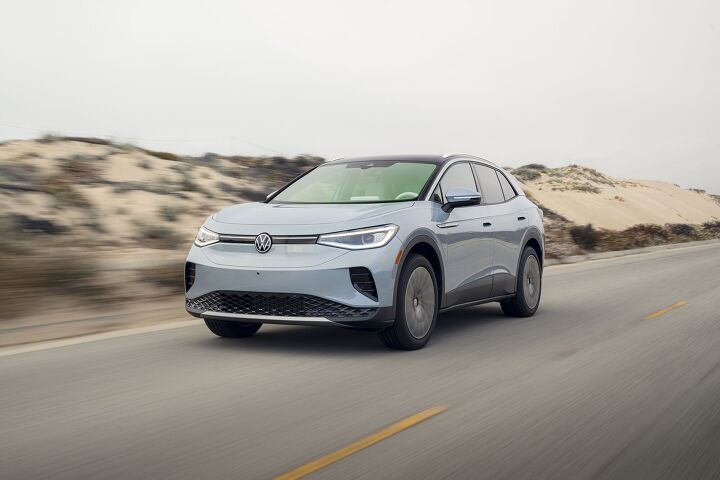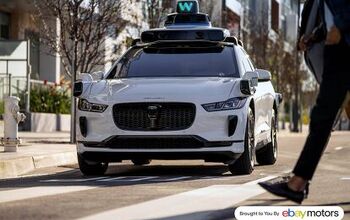This Volkswagen EV Now Comes with Full Tax Credit Benefits
Volkswagen has recently announced that their MY23 and the upcoming MY24 models of the ID.4, equipped with SK On battery components, will be eligible for the full $7,500 Federal Tax Credit. This development makes these models of the ID.4, which start at a base MSRP of $38,995 before the tax credit, a more budget-friendly option in the electric SUV segment. However, it's important to note that the eligibility of MY24 ID.4 models is conditional on future battery production and may be subject to change.
Unique Position of Volkswagen in the EV Industry
Volkswagen stands out as the only foreign car manufacturer currently offering a full battery electric vehicle in the U.S. that qualifies for the full Federal Tax credit. This achievement is largely due to the local assembly and sourcing practices of the company. Beginning in 2024, eligible customers will have the option to apply the tax credit directly at the point of sale as a down payment by transferring the credit to participating dealers.
Sales Performance and Impact of the ID.4
The ID.4 has established itself as a preferred choice in the EV market, attracting new customers to both the Volkswagen brand and to electric mobility. In 2023, it ranked as the fifth best-selling EV in the United States, with a sales increase of 84 percent compared to 2022. Pablo Di Si, President and CEO of Volkswagen Group of America, emphasized the affordability of the ID.4 and how the tax credit enhances its accessibility. He also highlighted Volkswagen's commitment to localizing assembly in Tennessee and investing in battery production, component manufacturing, and innovation.
Specifications of the 2023 Volkswagen ID.4
The 2023 ID.4 is available for sale with two battery sizes and two powertrains. The Standard model features a 62kWh battery with an EPA-estimated range of 209 miles, while the ID.4 Pro has an 82 kWh battery, offering an EPA-estimated range of 275 miles. The ID.4 AWD Pro models boast up to 295 horsepower and an all-wheel-drive capability, with an EPA-estimated range of 255 miles.
Final Considerations
It's important for potential buyers to understand that not all vehicles or customers will qualify for the tax credit. Only specific models with certain battery components are eligible. Additionally, the tax credit is only applicable on the original purchase of a qualifying vehicle and cannot be used for leasing. Customers are encouraged to consult a tax advisor for eligibility based on their individual tax situation. The tax credit program is subject to limitations and changes that are beyond Volkswagen's control.
This article was co-written using AI and was then heavily edited and optimized by our editorial team.
More by TTAC Staff
Latest Car Reviews
Read moreLatest Product Reviews
Read moreRecent Comments
- Tassos One my LAST YEARS TEACHING AT A LOW RENT institution I had to buy a FEMALE UNDERGRAD a fiat 500 after SHE THREATENED TO COME FORWARD about my unwelcome advances. THAT IS WHY I DISLIKE SMALL CARS AND THE METOO MOVEMENT
- 3-On-The-Tree My son drives my hand me down 2010 Corolla. I bought that car new and drove it from Ft Huachuca Az to Ft Leavenworth Kansas for the Staff college the to Ft Bliss Tx then gave it to my oldest son then my second son and now my youngest son. They all want the 2009 C6 Corvette and 2002 Suzuki Hayabusa.
- Tassos BIDEN BRATISLAVA VIP BREADVAN ON STILTS!
- Ted The automotive period we are in reminds me of the malaise era of the 70s and early 80s. Government emission mandates exceeded the available engineering capabilities of most auto makers (sans Honda). Mileage, performance, and reliability all decreased. It wasn’t until both fuel injection and electronic engine control became available that all three improved again.Seems BEVs are in a similar spot; battery technology needs breakthrough improvement, charging needs to be faster and more ubiquitous. As those things happen, BEVs will make more sense.Agree the aspirational mandates are ahead of the current technology and infrastructure.
- Golden2husky This was a common topic at work - kids learned how to drive, and now another car is needed. I was amazed at all the excuses made about how their kid must have a new car. Used cars are a "risk" for breakdown, they are not as safe, etc...which is all BS of course. How much difference in safety is there between a new car and the same model that is five years old? Maintained cars don't break down very often. I've driven cars for far, far longer than most and have been towed exactly twice in my entire driving career (about 800,000 miles). While I wouldn't put my daughter into a 15 year old car and let her drive across the country, I would be fine with a 5 year old car that was well cared for. Let's be realistic - new drivers are likely to get into a fender bender - why do that to a new car. I was thrilled to get an 8 year old car for college back in the day even though my folks could afford to buy all of us new cars if they wanted to. If you Want to buy your kid new, go ahead. Just don't freak out when they come home with a fresh dent.


































Comments
Join the conversation